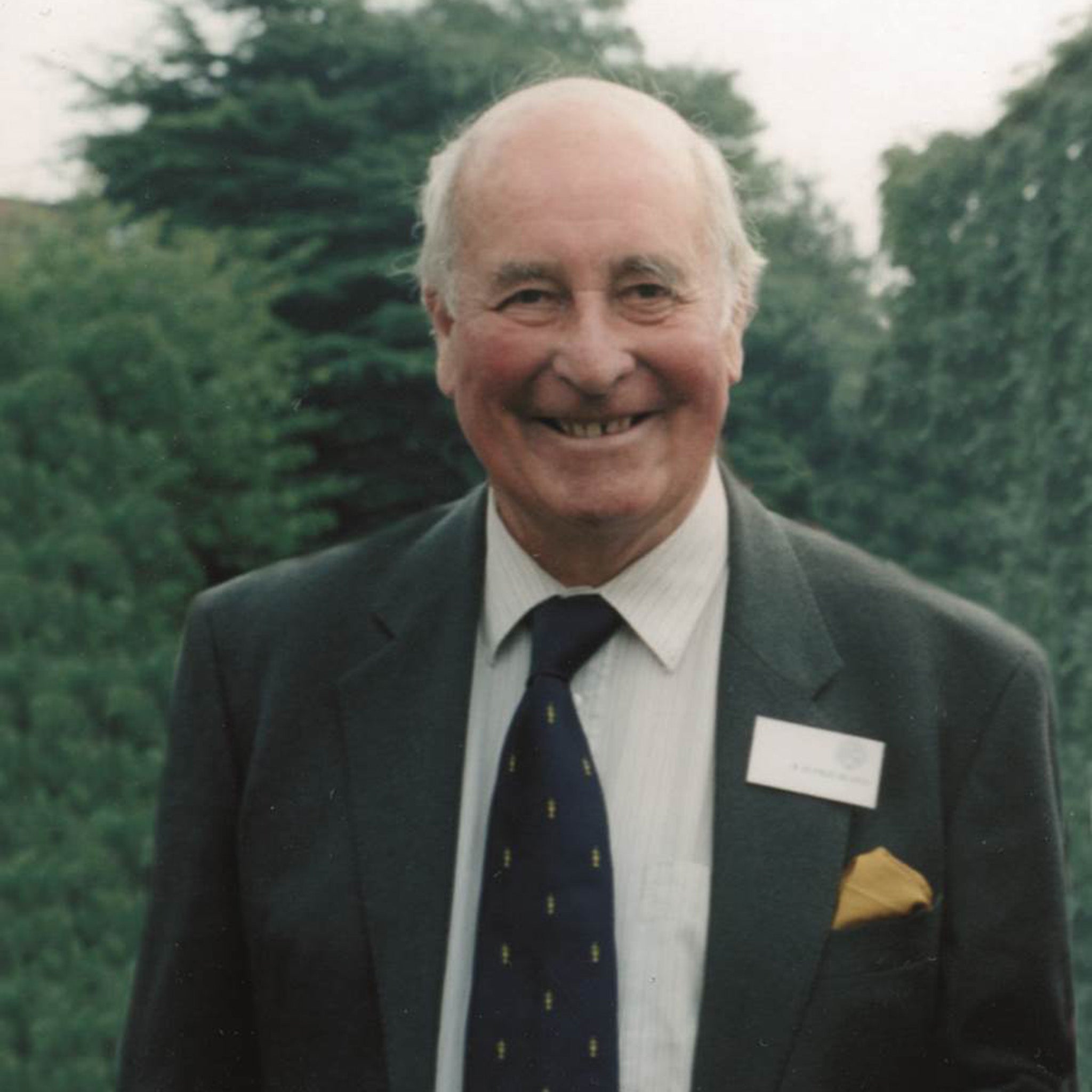Fran Prichard: Veteran of the World War II Arctic convoys who became an admired and respected schoolmaster
He remained a pillar of stability – but never inflexibility – in a changing educational world

Fran Prichard was a dedicated and popular schoolmaster, able to move with the times and to bring everyone with him. He dropped anchor at St Edward’s, Oxford in 1952, and stayed there, in a variety of guises, for more than four decades.
His father, the only one of four brothers to survive the Great War, served with the Indian Civil Service in Assam, where Fran was born in 1925. An only child, he was dispatched to England when he was barely two and farmed out to distant (and, he reckoned, dusty and reluctant) relatives until his parents returned 10 years later.
Stability of a kind arrived when he was moved to The Elms at Colwall and began holidaying with the Chesterton family at the vicarage in Tenbury Wells. Their son George, who was to become one of the finest amateur bowlers of the 1950s, provided much-needed brotherly support and spirited opposition as The Ashes were contested on the family’s front lawn.
He was then educated at Marlborough College. During school holidays in the early years of the Second World War he volunteered for night fire watch in Hereford Cathedral. He joined the Royal Navy in 1944 and served aboard HMS Zealous on the Arctic convoys. As he crossed the Arctic Circle for the first time, the captain asked him for a noon sun-sight. He responded with his customary honesty, though without the bluff confidence that normally went with it: “Well, sir, we appear to be about eight miles north of Derby…”
His grandfather and father had both been at Brasenose College, Oxford, and in the tradition of that time Fran’s name had been put down at birth, so he assumed that a stroll around Christ Church Meadow with the Principal in his last term at school had been his interview. On demob he phoned that august personage from a public box in Portsmouth dockyard to announce his imminent arrival. His father considered this to be extraordinary behaviour – as, upon reflection, did Fran himself. But it worked. He embarked upon his history degree two weeks later.
After a brief flirtation with industry, he tried teaching; first at Summer Fields, then St Edward’s, where a job became a vocation. He taught history at all levels, some Latin, sports to those that mattered – the 3rd XI and below – and went on to become secretary of the old boys’ society, appeal director and compiler of the school roll.
It was as the housemaster of Sing’s that he was perhaps most revered – though the very mention of such a word would have embarrassed him hugely. While pupils, colleagues and parents considered him an extremely gifted and at times inspirational commanding officer, he preferred to say that his place was in the engine room with an oily rag.
Prichard valued people for who they were, not on account of their plumage, and never ceased delighting in connections and possibilities. His ability to absorb, remember and recall personal detail, even from the most fleeting of exchanges, was legendary. He was an old-fashioned networker, always for the benefit of others, never himself. Amusement and appreciation were his rewards.
He remained a pillar of stability – but never inflexibility – in a changing educational world. He always valued loyalty, discretion and integrity. He eschewed tittle-tattle, backbiting and displays of immodesty. He was good company. He would lead his audiences in laughter, never at their expense. His humour was wonderfully mischievous, self-deprecating, and peculiarly British. His generosity of spirit and the warmth of his hospitality remained undimmed by Multiple System Atrophy, the rare, aptly named disease he bore so courageously. Claret was always on offer, even when Fran could only sip it from his favourite beaker, the Horn of Plenty, through a plastic straw.
In 1951 Fran married Pat, a war widow and daughter of Lieutenant General Sir Frederick Morgan, the chief planner of the D-Day invasion. Together they bought the Martin Luther, an old Rochester barge firmly stuck in the mud in the River Blyth, as a holiday bolthole, and later graduated to a much-loved cottage next to the Harbour Inn. She died in 2005.
He is survived by two sons – the elder an employment judge, the younger a former commanding officer of the SAS – and a stepdaughter in California.
Francis Hesketh Prichard, schoolteacher: born Assam 30 October 1925; married 1951 Pat (died 2005; two sons and one stepdaughter); died 31 December 2015.
Join our commenting forum
Join thought-provoking conversations, follow other Independent readers and see their replies
Comments
Bookmark popover
Removed from bookmarks